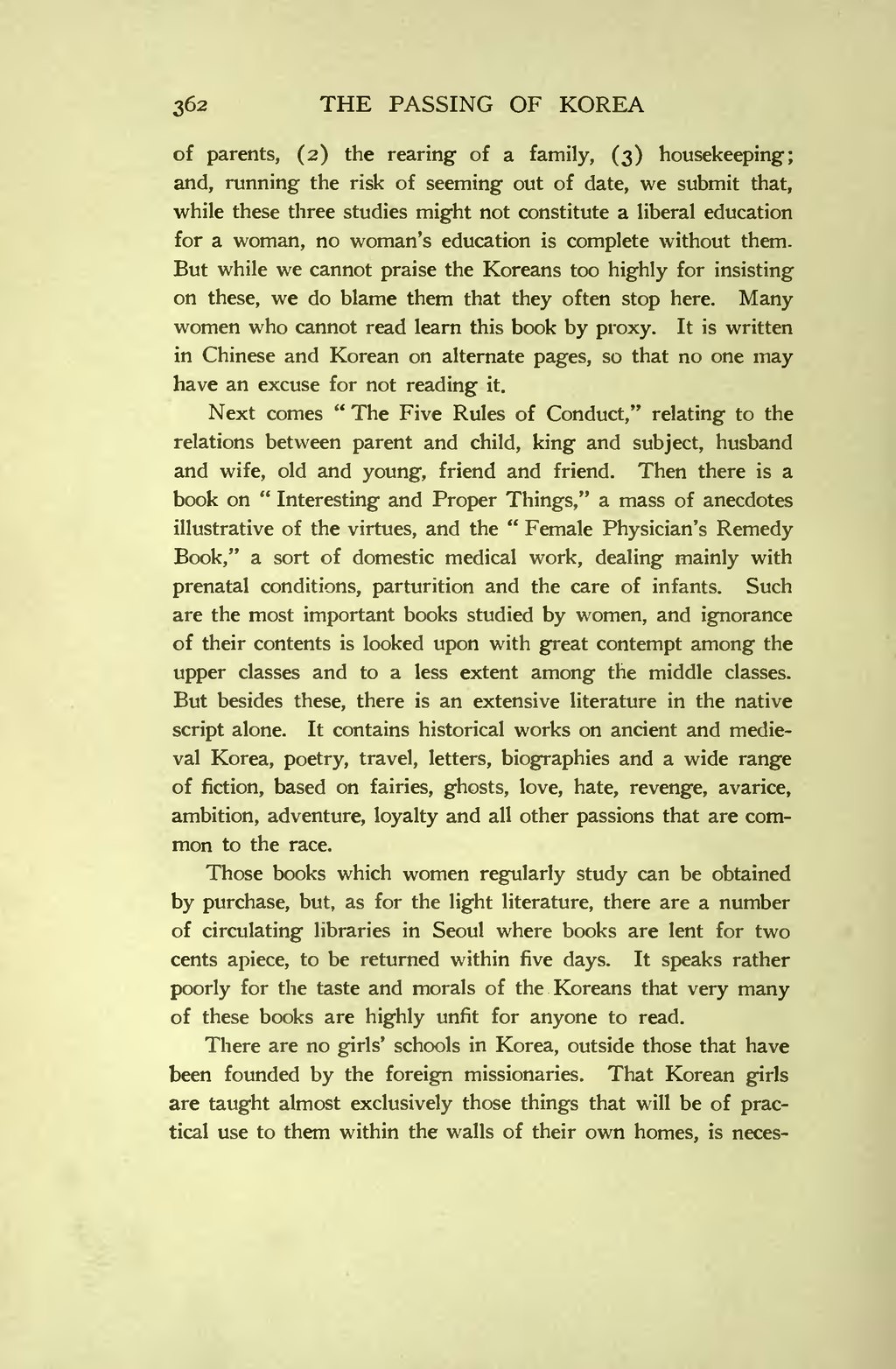of parents, (2) the rearing of a family, (3) housekeeping; and, running the risk of seeming out of date, we submit that, while these three studies might not constitute a liberal education for a woman, no woman's education is complete without them. But while we cannot praise the Koreans too highly for insisting on these, we do blame them that they often stop here. Many women who cannot read learn this book by proxy. It is written in Chinese and Korean on alternate pages, so that no one may have an excuse for not reading it.
Next comes "The Five Rules of Conduct," relating to the relations between parent and child, king and subject, husband and wife, old and young, friend and friend. Then there is a book on " Interesting and Proper Things," a mass of anecdotes illustrative of the virtues, and the " Female Physician's Remedy Book," a sort of domestic medical work, dealing mainly with prenatal conditions, parturition and the care of infants. Such are the most important books studied by women, and ignorance of their contents is looked upon with great contempt among the upper classes and to a less extent among the middle classes. But besides these, there is an extensive literature in the native script alone. It contains historical works on ancient and medieval Korea, poetry, travel, letters, biographies and a wide range of fiction, based on fairies, ghosts, love, hate, revenge, avarice, ambition, adventure, loyalty and all other passions that are common to the race.
Those books which women regularly study can be obtained by purchase, but, as for the light literature, there are a number of circulating libraries in Seoul where books are lent for two cents apiece, to be returned within five days. It speaks rather poorly for the taste and morals of the Koreans that very many of these books are highly unfit for anyone to read.
There are no girls' schools in Korea, outside those that have been founded by the foreign missionaries. That Korean girls are taught almost exclusively those things that will be of practical use to them within the walls of their own homes, is neces-
